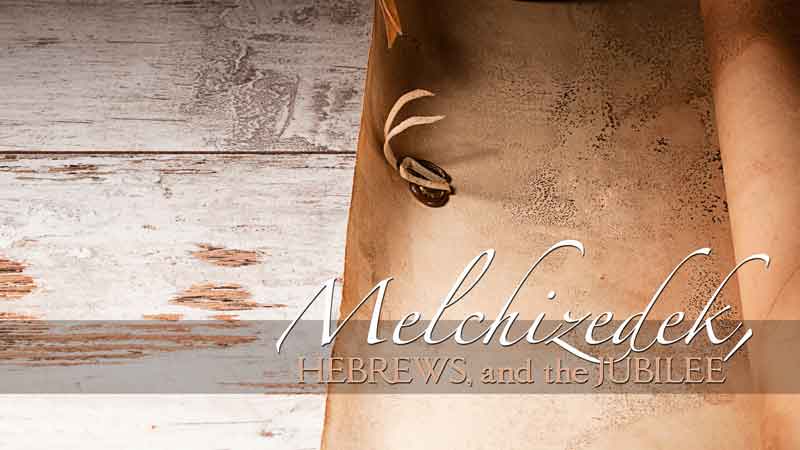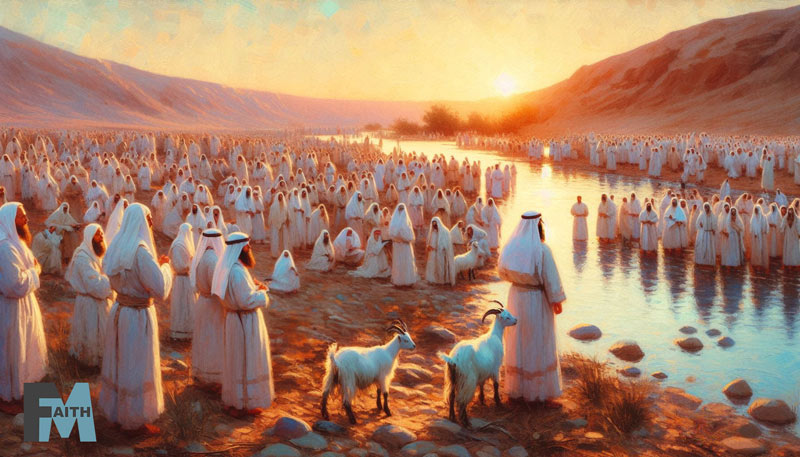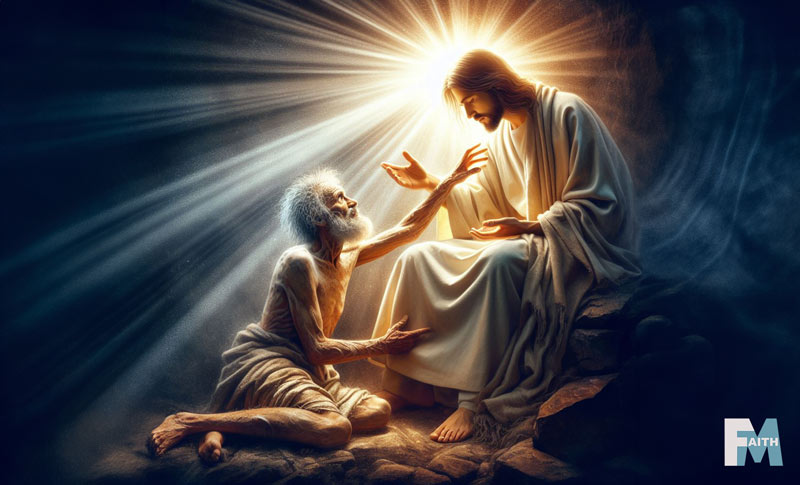Melchizedek is a character only mentioned twice in the entire Hebrew Bible and yet he becomes one of the main characters in the Letter to the Hebrews. What was it about this Melchizedek that was so important that he receives such a prominent place in Hebrews’ midrash on the Messiah? In this series we will investigate the passages referring to Melchizedek in the Hebrew Bible and the extra-Biblical references to him in 2nd Temple Jewish literature. We will especially focus upon the Melchizedek Scroll (11Q13) from Qumran which provides important parallels to the Letter to the Hebrews’ usage of Melchizedek. The Melchizedek Scroll depicts Melchizedek as the agent of YHWH who enacts an eschatological Jubilee on the Day of Atonement which is similar to the theme of Hebrews.
For this Melchizedek was king of Salem, priest of God Most High. He met Abraham returning from the defeat of the kings and blessed him, and to him Abraham apportioned a tenth of everything. First, by the translation of his name, he is “King of Righteousness”; and then also King of Salem, which is “King of Peace.” Without father, without mother, without genealogy, having neither beginning of days nor end of life but made like a son of God, he remains a priest for all time.
Oops! You don't have access to this content!
You will need Silver level access to watch this teaching.
Alternatively, you can purchase this teaching on DVD or download via the Digital Download store.







Ryan,
Great teaching on Melchizedek, Hebrews, and the Jubilee!! Can’t wait to hear the rest!!
Blessings to you and your family!!
I have a couple of questions.
1) Are these the full-length videos? I’m not used to your videos being shorter than 25 minutes or so! 😉 Don’t get me wrong! These are POWER PACKED, but I was just curious about the length.
2) Concerning the use of “to the order of” in Psalm 110:4, I see the Strong’s #1700, and it being used only 5 times total (Job 5:8, Ps 110:4, Ecc 3:18, Ecc 7:14 -according to blue letter bible), and only 2 times (according to biblehub.com), not 82.
Now, I am JUST learning Hebrew (through your teachings and the BBH DVD’s), so yes, I know that “dabar” means word, matter, or thing. I also get that dabar is the root of the word dibrah/dibrati that is used in Ps 110:4, but what I don’t get is where you see the word used differently 82 times.
I am so sorry to keep bugging you! I am a relatively new subscriber to your website, so I’m not really sure how things work when it comes to new teachings. I noticed that for this teaching, videos 3-10 are all the same, so are these videos just a (I’m struggling for the right word) “commercial”, “tease”, “taste”, “preview” of what the full teaching is? In other words, do I need to purchase the DVD set to get the full teaching?
Thank you for your reply.
Shalom!
Hi Christy,
Actually, that’s an error on my end. I made the videos available for purchase for those not on the website and it looks like it messed things up. I am working on fixing it right now and the videos should be online shortly. You will not need to purchase anything additional.
The Hebrew word in Ps 110:4 is ‘divarti’. Strong’s is not an end all, it is just some scholars opinion of what a word could possibly mean and is very out dated. Also, in reality it is just a list of all the ways that the word is translated in the KJV. The thing is, nobody can actually say whether the word is from the noun ‘davar’ (word, thing) or the proposed noun ‘divrah’ (manner, order, cause, because of, so that). Given that it only (supposedly) appears 5 times, its probable that its actually just a different usage of ‘davar’. However, you won’t be able to trace that in a Strong’s because it is limited to how the KJV has categorized the word.
What I did instead is that I ran a search of the Hebrew text to find the number of times דִּבְרָתִֽי appears in the Masoretic text with the exact same spelling and it resulted 82 different times. One of those times is Ps 110:4 and another is Job 5:8, but the ones in Ecc are actually ‘divrat’, not ‘divarti’ (same root word, just without the singular possessive suffix). The other 80 occurrences are spelled exactly the same with the same nikkud (vowel markings) and yet some scholar decided that they came from the root word ‘davar’ rather than ‘divrah’. So my statement is simply challenging the scholars opinion which is biased due to the traditional rendering of Ps 110:4 due to the rendering in Hebrews.
Hope that makes sense.
Thank you, Ryan. That makes sense, and I hope to one day have access to resources beyond Strong’s. I am just one who likes to see it for myself, especially now. Thanks again!
Bit frustrated here. We just upgraded to silver because we wanted to listen to some of your material on Shabbats. However, it seems that we cannot listen to any of them unless we do some sort of “zip” download which requires not only lots of memory on an iPad but also an App download for $10 a month to maintain. Isn’t there a way to just listen off of the site itself? Admittedly, we are not super techy when it comes to computer issues so maybe we are missing something here.
Hi Jeff,
There is an audio player embedded on this page that you can play the audio off of. If you are unable to see the audio player, let me know and we can troubleshoot.
Is “table fellowship” a lot different than “hospitality”? Just wondering about the seeming differences there… Abraham was known for his hospitality… but in order to abide by cultural table fellowship conventions, did he refuse to serve certain people who came to his door–?
How do you see this in today’s culture? I tend to take the act of eating together as covenantally (if that’s a word) symbolic although I believe I’m alone on that. In fact, people today don’t see eating together even as a family as important. So, eating food has become little more meaningful than filling our empty stomachs. We’re missing something here… don’t you think?